Traveller and the Human Chain
southpole .....
Later: Fresh Air and Bananas
Earlier: Reveille
Nov. 17, 2011 11:39 NZDT B2 Science, Amundsen-Scott South Pole Station
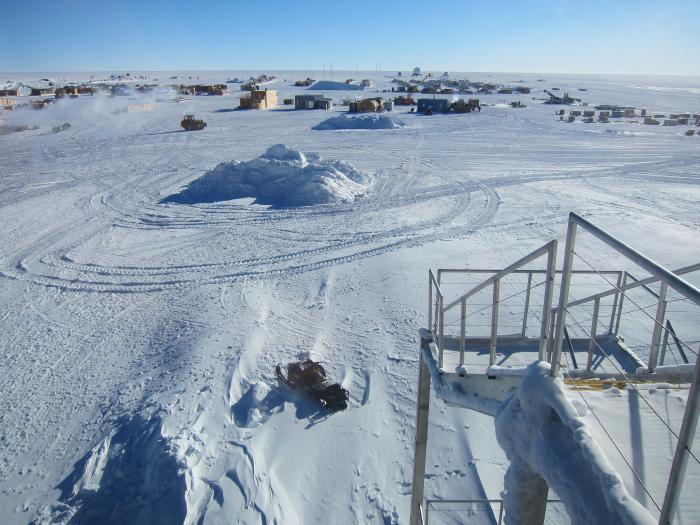
Just helped form a human chain to bring the mail into the Station, brought to Destination Zulu by a snowmobile/sled combo and a front loader from Cargo, and swapped hand-to-hand up the stairs into the airlock to the Post Office. Mail is a big deal here, and I’ve enjoyed getting it in the past, so it’s fun to be a part of that, even if just a few minutes.
Though I’ve continued to acclimate and have started running in the Gym, I have not been sleeping well. Not sure why, because, though noisy, it’s not as loud as it’s been in the past. It’s still bearable. But I have to admit it feels as there is no getting away from this place sometimes. Getting through a few weeks is enough of a challenge that I find it hard to imagine a whole year (much less multiple years like some winter-overs here have done). I do remember, however, that it always seems to take a period of adjustment to get into a rhythm here. The irony of the short trips I usually take is that I’m generally more or less settled in by the time I leave.
At some point I owe returning readers to this blog an explanation. Though I’ve always looked at my trips to the Pole as potentially “the last time” (as any visit to an extremely strange/strangely extreme place can be), I was pretty sure last season WOULD be the last time, since we were done with IceCube construction. I kind of made a big deal out of it, and said my goodbyes to this place in this blog last January.
Clearly I was wrong, since here I am. The reason why is that we still have to run the experiment we built, at great cost and effort, for many years to come. Each season we have new winter-over scientists, who have to get trained in many different, rather technical and esoteric areas relating to the operation of the detector itself. This includes the maintenance of roughly 150 servers in our laboratory building, keeping an eye on network switches, disk and tape drives, UPSs, etc.; and running a dozen or so homebrew software subsystems, each written (mostly) by physicists, and each with its own characteristic quirks and features. Though we do some days training on a test system in Madison, Wisconsin, there is no substitute like training in situ, and so my task for this early-season visit is to help facilitate that training, to answer those questions I can answer, to provide exercises and training tasks which will help them prepare for the coming year. My hope was also to get a bit more caught up on various programming tasks (a hope so far not really realized).
All this raises the question, how many more times am I going to do this? Some of you probably figured out long before I did that I might have to actually “decline further missions” if I want to be certain that this trip (or any future one) is the last.
To contemplate further trips requires some notion of how such work aligns with one’s goals and aspirations.
In the 1980s, at the height of the Dungeons and Dragons-inspired craze, my friends and I would occasionally take a break from D&D to play a science-fiction variant called Traveller. The basic idea is the same as D&D — one person 'creates the world’ and the other players create characters who do various things in the world, with a sort of story unfolding spontaneously out of the interactions between the characters and the world, and each other. But rather than knights and magicians entering lairs of monsters, in Traveller, one learns esoteric skills and then travels from planet to planet to carry out various adventures. Worlds can vary wildly in climate, culture, and technological sophistication, from backwards forested planets to dazzling urban arcologies to frozen wastes….
The first few times I arrived at Pole, it felt like I was in a Traveller game. The military modes of transportation; the quirky, unwashed characters; the utter lack of scenery; the only-slightly-breatheable atmosphere; and the elusive sub-atomic quarry we were hunting… it was all just so damned sci-fi. Of course the old Station with its ’70s-era geodesic aluminum dome and the somewhat ramshackle orange buildings within, the slightly chaotic, dirty charm of the place, contributed to the atmosphere of duct-tape-and-gritty-humor. I loved that aspect of it… in a way, I guess I was living out the dream we had carved out gaming in my friend Fred’s basement fifteen years earlier, and in the books and films I consumed wholesale throughout my (er, extended?) adolescence.
Now, much of that feeling has been worn away with familiarity. I’ve been asking myself what’s left when you take away that sci-fi feeling. The South Pole is a job site. People make money here, make and lose friends, fall in and out of love, go to the bathroom, get inspired or depressed (or both), have accidents, get older. What arises to fill the absence of the fantasies that this place used to fulfill? Other than, of course, the physical and emotional discomfort — sleeplessness, chapped hands/lips/elbows/…, headaches, light-headedness, shortness of breath, sinuses made of wood, lack of fresh fruits and vegetables, two minute showers twice a week, lack of privacy, restricted entertainment options, lots of rules, nowhere to go.
I don’t have the answer now but I’m living it, whatever it is. It seems to be something about how to maintain cheerfulness under discomfort and duress. About trying to stay curious about other people when your own life doesn’t feel that easy. About the gap between when someone coughs in an adjacent berthing and when the wind rattles the wall behind your pillow. About enjoying small things like a good cookie or a shared laugh. About accomplishing what you set out to do, with as much contentment as you can manage. And, when you leave, about the satisfaction of seeing night time, and leaves, and (liquid) water, and loved ones again.
Regardless of whether or how I return here in the future, at the moment, getting to know some of these things better is the way forward: both the effort, and the reward.
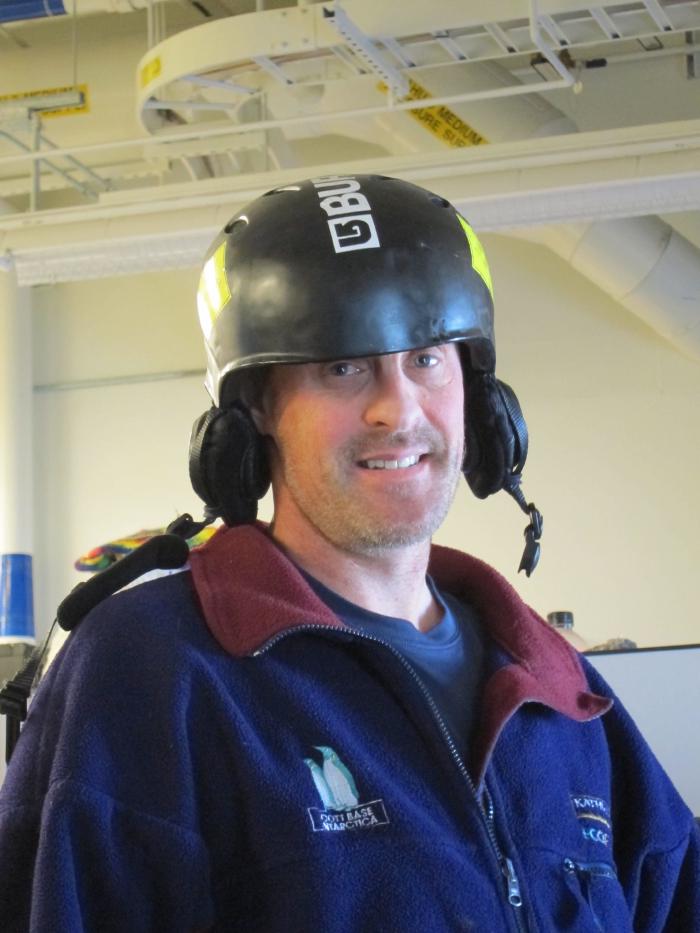
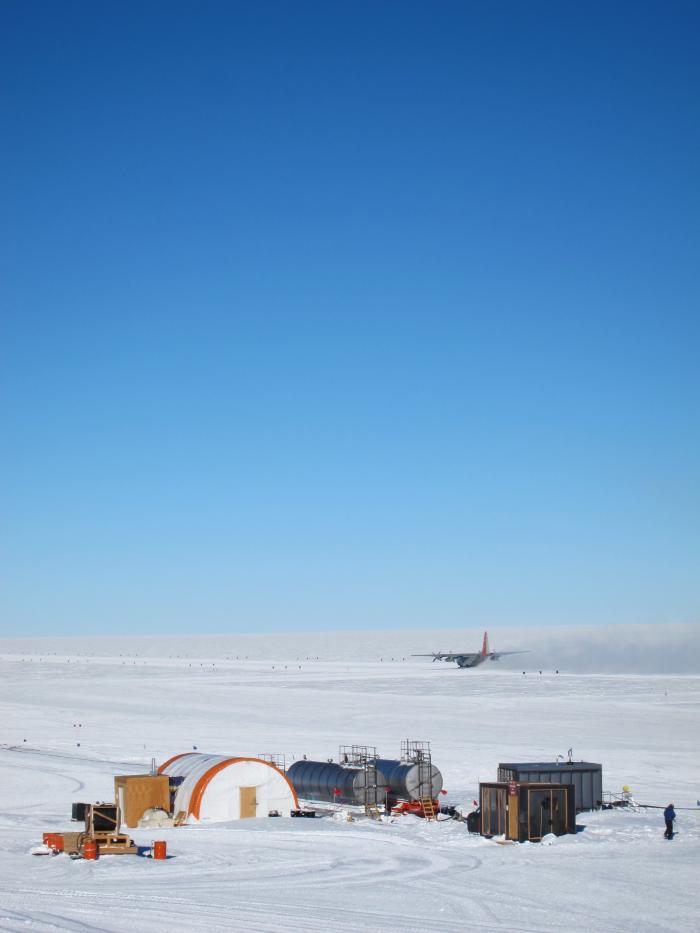
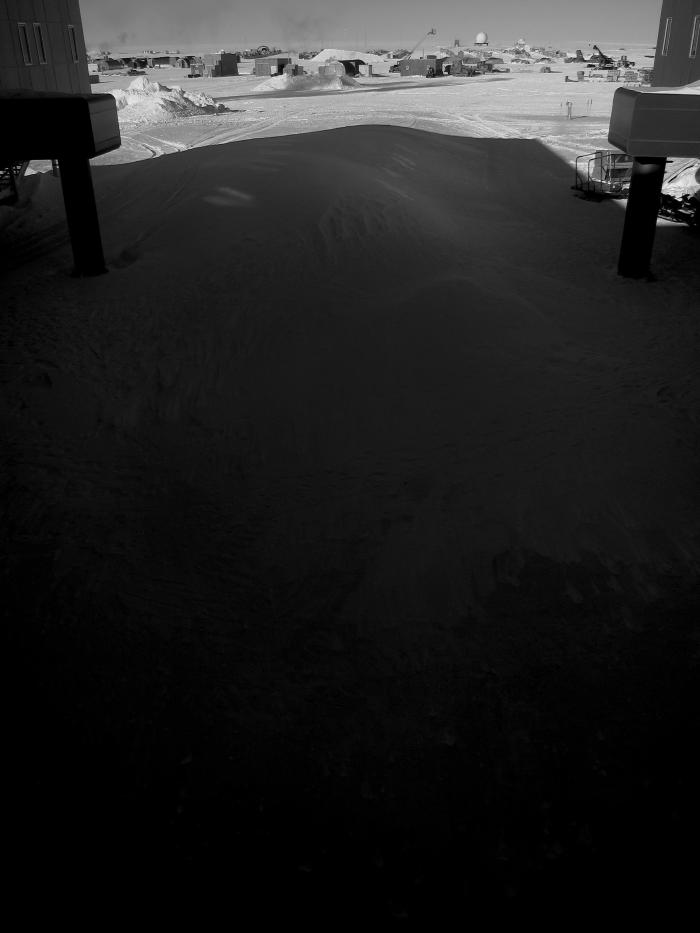

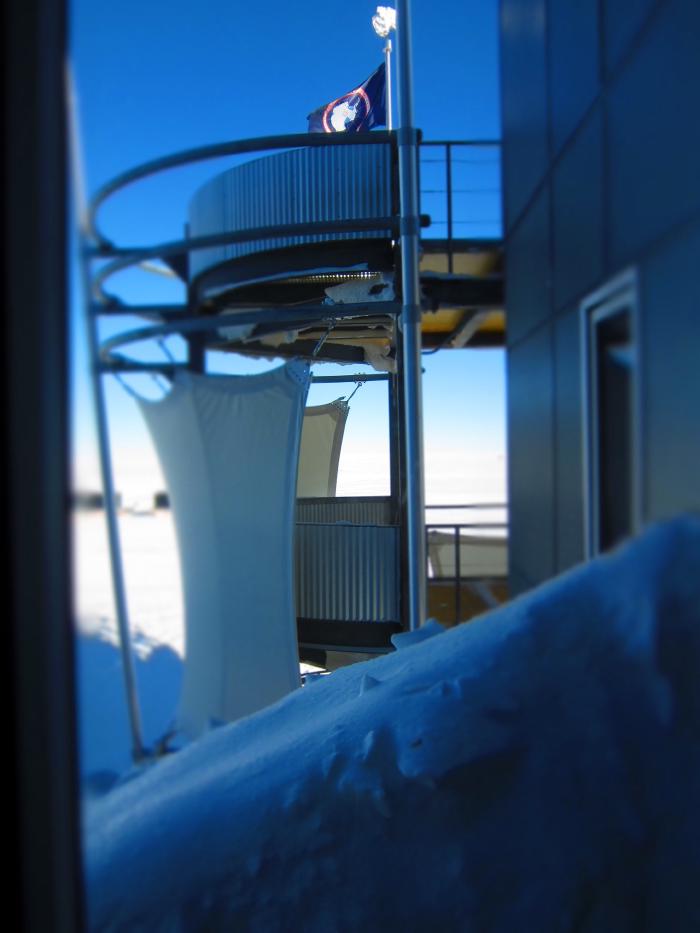
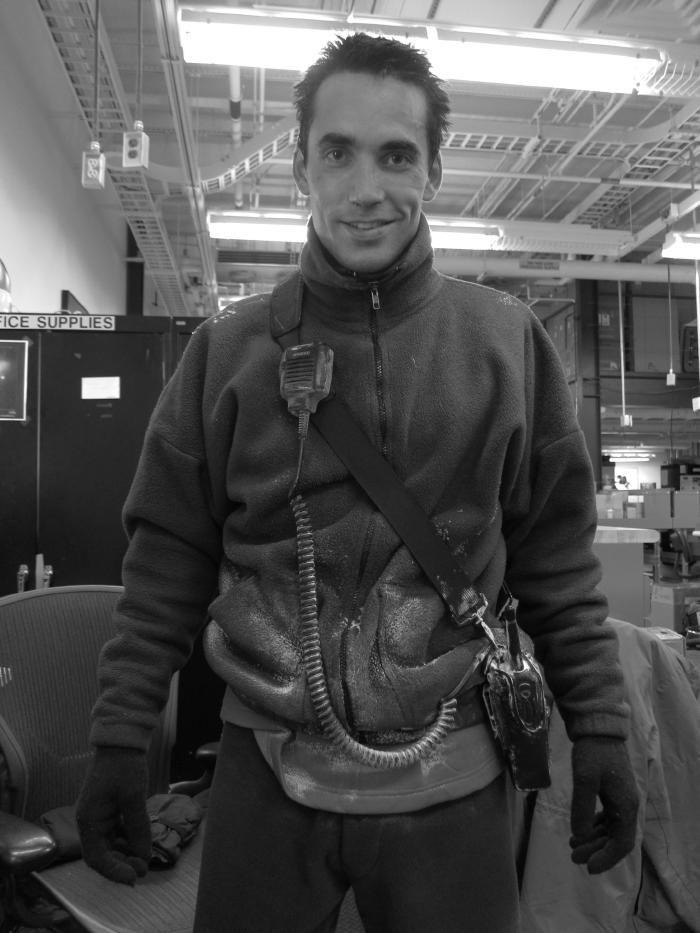
Later: Fresh Air and Bananas
Earlier: Reveille